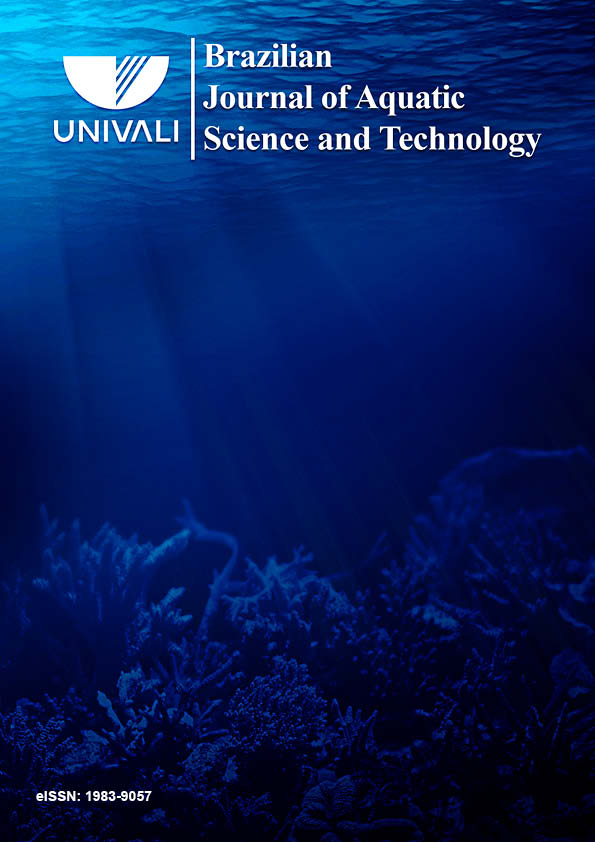

Odonata larvae in fishponds prey on fish fingerlings and decrease the profits from production. With the goal of eliminating these larvae from fishponds, large quantities of pesticides are applied. These products are toxic to fish and have unpredictable effects on the food chain. The objective of this study is to evaluate the effect of the plant extract of fruits of Melia azedarach (CEE) and of methyl parathion (MP) adsorbed in silica in the control of Neuraeschna larvae (Odonata: Aeshnidae). The LC50-18h for CEE was 0.57 mg L-1, and for MP the LC50-12h was 0.17 mg L-1. Two compounds with the highest concentration were isolated and identified from CEE, linoleic acid and melianone. The latter is a triterpene precursor of limonoids, compounds with insecticide properties. The substitution of synthetic pesticides for natural products is a path towards the sustainability of fish farming.






Ciências Ambientais, Ambientes Aquáticos e Costeiros.
BJAST adota a política de publicação contínua de artigos. Assim, sempre que um manuscrito for aprovado para publicação, estará imediatamente disponível para leitura.

